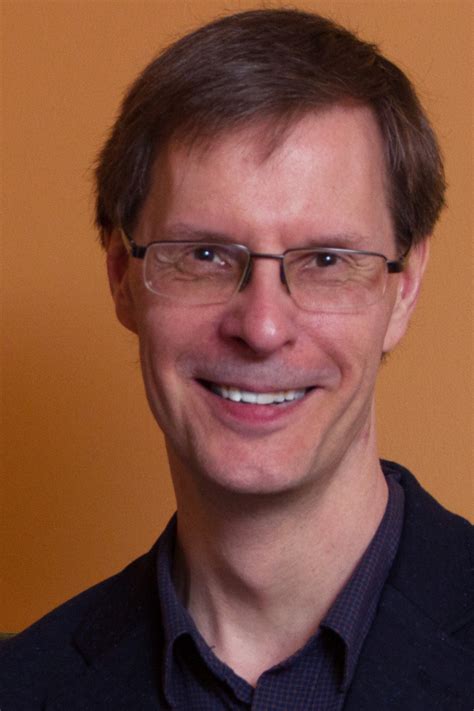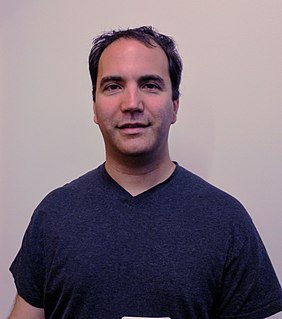A Quote by Stephanie Mills
Individuals can refuse to use a given technology, but unless they live in total isolation will have to engage with people whose psyches have been shaped by a multitude of technologies. And there is no escaping the pervasive ecological effects.
Related Quotes
Introducing a technology is not a neutral act--it is profoundly revolutionary. If you present a new technology to the world you are effectively legislating a change in the way we all live. You are changing society, not some vague democratic process. The individuals who are driven to use that technology by the disparities of wealth and power it creates do not have a real choice in the matter. So the idea that we are giving people more freedom by developing technologies and then simply making them available is a dangerous illusion.
Both instruments are processors of information. Both appeared when nothing quite like them had existed before, and both began to make their effects felt immediately (a situation that isn't invariable with new technology). Both devices were less the result of a single breakthrough than of an evolving set of technologies. Like the computer, the printing press had no one certain inventor; it was a technology whose time had come.
New information and communications technologies can improve the quality of life for people with disabilities, but only if such technologies are designed from the beginning so that everyone can use them. Given the explosive growth in the use of the World Wide Web for publishing, electronic commerce, lifelong learning and the delivery of government services, it is vital that the Web be accessible to everyone.
I've always been interested in technology, but specifically how we can use machines to engage the imagination. I started using computers when I was young and was fascinated by creating rules and instructions that allow a computer to engage in a dialogue with humans. The stories found in the data all around us can do just that.
I started my career as a journalist, writing about science and technology for 'Business Week' magazine. Then I decided to make a career shift. I went to graduate school in computer science, and I began developing educational technologies - in particular, technologies to engage children in creative learning experiences.
Has the Ministry assessed what manpower savings or cost efficiencies have been derived from such use of new technologies, and how policing capabilities have been enhanced? What new initiatives can we expect, and how will the police guard against their officers being “de-skilled” by over-relying on technology?
. . . the upsurge of Spirit is the only plausible way to stop the ecological destruction of our planet. Even people who have no interest in a communal solution to the distortions in our lives will have to face up [to] this ecological reality. Unless we transform our relationship with nature, we will destroy the preconditions for human life on this planet.
At issue is not only knowledge of the world but our survival as individuals and as a species. All the basic technologies ever invented by humans to feed and protect themselves depend on a relentless commitment to hard-nosed empiricism: you cannot assume that your arrowheads will pierce the hide of a bison or that your raft will float just because the omens are propitious and you have been given supernatural reassurance that they will. You have to be sure.
Trusting people to be creative and constructive when given more freedom does not imply an overly optimistic belief in the perfectibility of human nature. It is, rather, belief that the inevitable errors and sins of the human condition are far better overcome by individuals working together in an environment of trust and freedom and mutual respect than by individuals working under a multitude of rules, regulations, and restraints imposed upon them by another group of imperfect individuals.




































